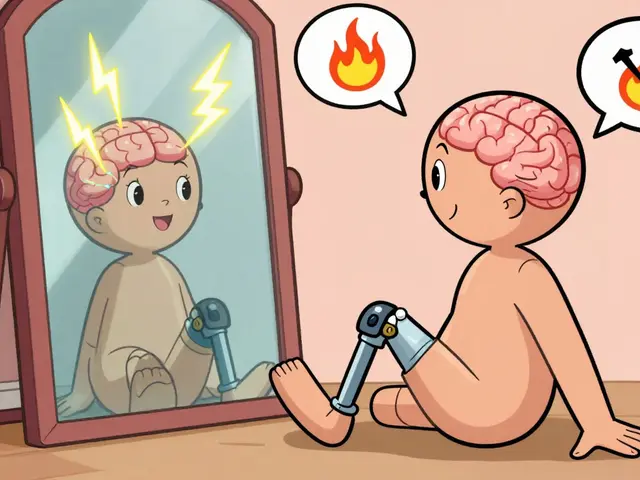Bloating: what it feels like and what to do about it
Bloating is that tight, swollen feeling in your belly after eating or during the day. It can be mild and annoying or painful and disruptive. Most of the time it’s from trapped gas, overeating, or a food that doesn’t sit well with you. You don’t need fancy treatments—small habit changes usually help a lot.
Fast relief: what to try right now
If your belly feels full or gassy, try these simple moves. Walk for 10–15 minutes after a meal to help move gas through your gut. Sip warm water or weak tea (peppermint or ginger can calm the stomach). Avoid lying down right after eating. Try a gentle belly massage: move your hands clockwise from the lower right side across your belly to the left and up. Over-the-counter simethicone can reduce gas bubbles for some people.
Watch what you drink. Carbonated drinks trap air in your stomach; switch to still water. If you chew gum or use hard candy, cut back—those add swallowed air. If you notice artificial sweeteners (sorbitol, xylitol) in foods, try cutting them out for a week to see if things improve.
If bloating keeps coming back
Start tracking. Keep a short food and symptom diary for two weeks: what you eat, when you bloat, and how long it lasts. Patterns often jump out. Common triggers are beans, lentils, broccoli, cabbage, onions, garlic, apples, pears, and dairy for people with lactose issues. Eating fast or large meals also causes problems—try smaller portions and chew slowly.
Consider a trial of a low-FODMAP approach for a few weeks if you get bloated a lot. Many people with IBS or sensitive guts get relief by temporarily cutting high-FODMAP foods. You can do this with help from a dietitian so you don’t miss nutrients.
Probiotics help some people, especially for bloating tied to irregular bowel habits. Start with one type (like Lactobacillus or Bifidobacterium) and give it 4–8 weeks. If nothing changes, stop and try something else—probiotics don’t work for everyone.
Don’t ignore red flags. Get medical care if bloating comes with severe belly pain, unexplained weight loss, persistent vomiting, blood in stool, or if you can’t pass gas or stool. Also see a doctor if bloating lasts more than a few weeks despite changes. Tests like breath tests for small intestinal bacterial overgrowth (SIBO), lactose intolerance checks, or celiac screening can pinpoint causes.
Small, sensible changes—watching portions, cutting obvious triggers, moving after meals, and tracking patterns—solve most cases of bloating. If home steps fail, a healthcare visit can find a clear cause and a plan that works for you.




